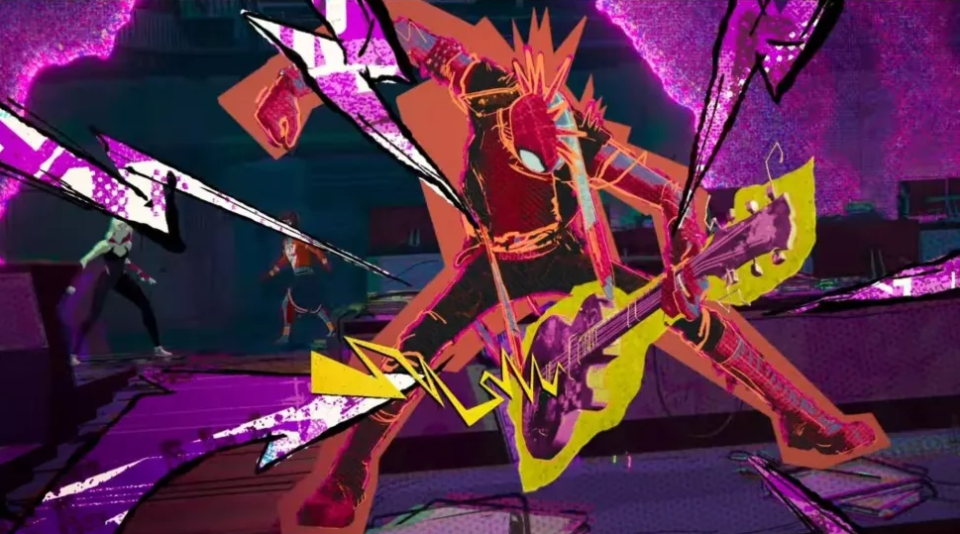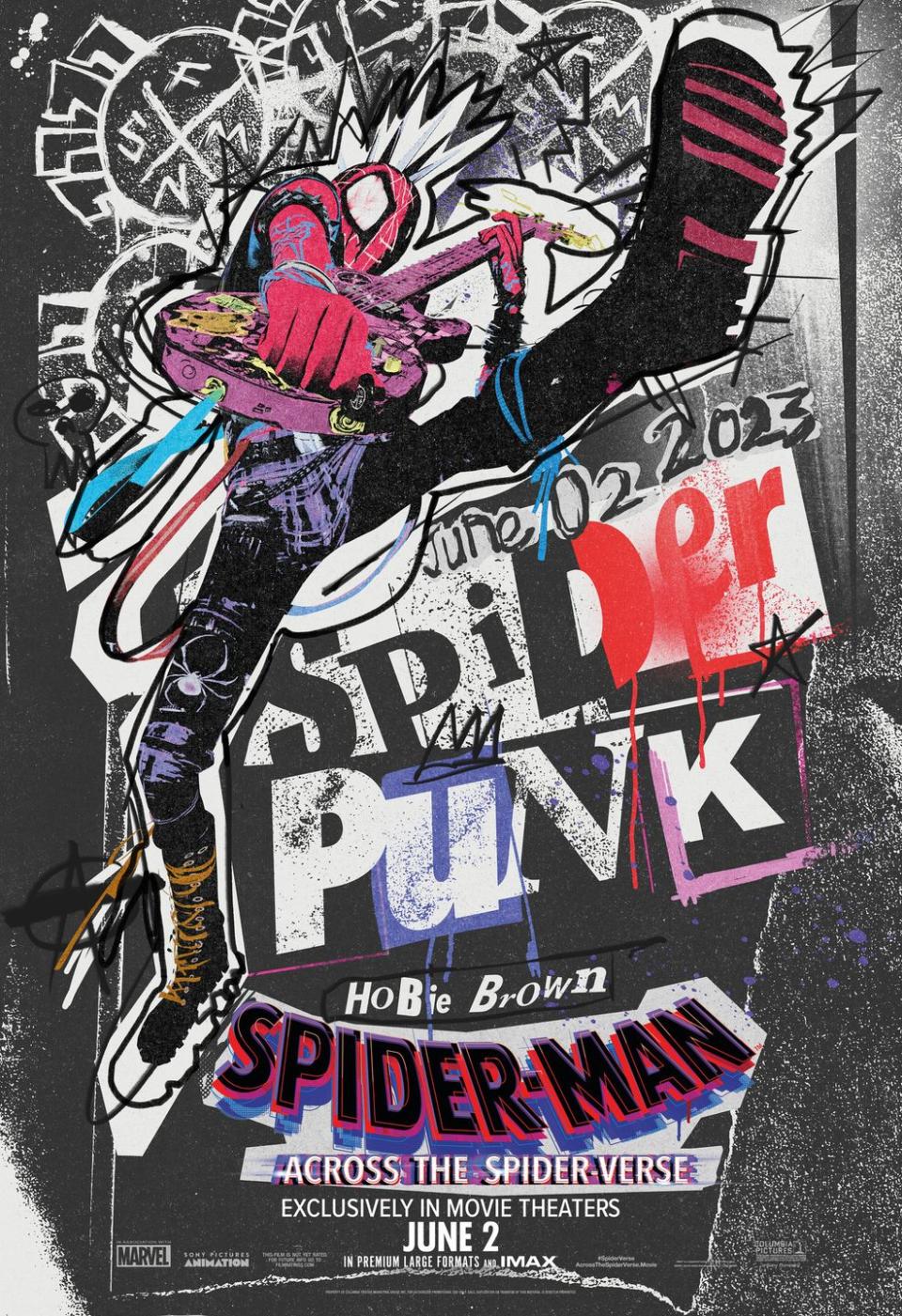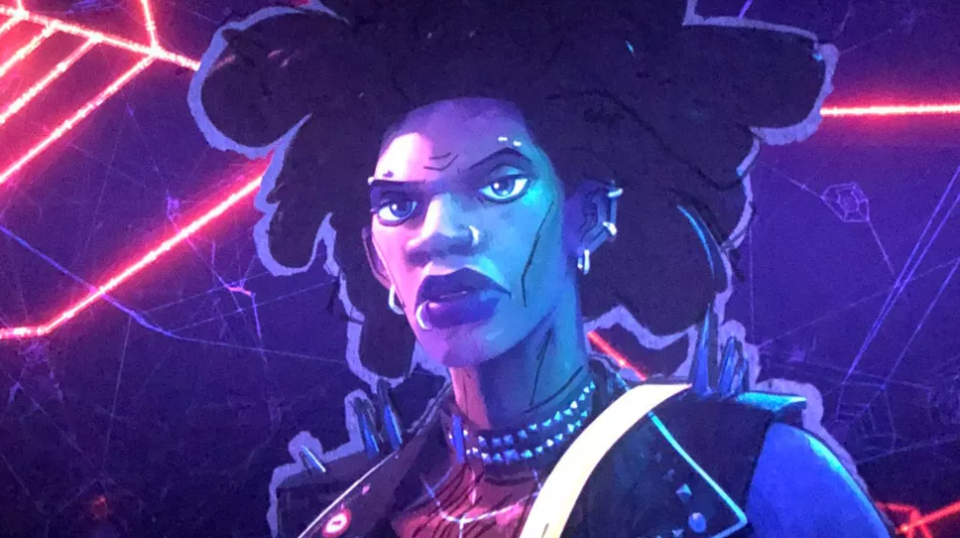Across the Spider-Verse's Spider-Punk is a step forward for Black British representation
Miles Morales' return to the big screen was always one that Marvel fans had high expectations for. After the critically-acclaimed first instalment of his story, Spider-Man: Across the Spider-Verse was always meant to be special, and it was.
From the perfectly mapped out character arcs of both Miles and Gwen Stacy as they struggle to grow into their personhood to the stunning animation that will no doubt continue to push the artform forward, the sequel proved to be just as spectacular as fans had hoped.
And one of the biggest reasons for that joy was the official introduction of the much-loved Spider-Punk into the Miles Morales story, marking a step forward for Black British representation.

Miles has already been groundbreaking as a character in many ways, and the most obvious comes from his background as one of the very first Black-Latino characters to exist in animation.
It is one thing to see a polite, well-adjusted, respectable young Black man get to exist in his own coming-of-age story. It is another thing entirely to then watch as he is helped and challenged by one of the most radical representations of Blackness – and that they are both superheroes.
Spider-Punk, aka Hobart "Hobie" Brown, hails from Earth-138 and what a feast of a character he is. Voiced by the brilliant Daniel Kaluuya, Hobie is a Black-British anti-establishment punk who hates capitalism, blindly following the crowd and distrusts figures of authority.
His character design is jagged around the edges and consistently shifting, while his personality swings between that classic cockney sensibility and immeasurable Black-British street swagger. He's simply the coolest Spider-Man in Across the Spider-Verse and perhaps even more refreshingly, he knows it, revels in it.

Alternative Black kids have been erased from popular culture for decades now. Despite genres like rock originating from within Black culture, our influence and connection has been severed by the limited portrayals of Blackness on-screen.
In the rare instances where we do see Black characters at the forefront, it is usually a representation that is mired by the belief that the only way to move the needle forward for us is to present strictly in opposition to prominent stereotypes; we are therefore pleasant, affable, agreeable. We play into respectability politics even on-screen.
There is another damaging stereotype that exists about us too though that deserves just as much criticism: that Black people are all part of one homogenous group.
Hobie simply destroys that notion with one Spidey swing. Seeing a Black character on-screen animated with piercings when we have for so long as a community tried to present in the most "non-threatening" ways alone illustrates just how different we deserve to be.

Fans have also interpreted the "punk" side of his persona to be linked almost exclusively to the genre of music as a symbol of disorderliness, but it's worth digging deeper into what punk means.
To be "punk" is to be questioning of authority in the most direct ways and that is not a sentiment that manifests only in that genre. He is therefore representative of all punk movements that young Black Brits have helped shape: punk, grime and, most recently, drill music.
He lies at all these intersections that mirror real life nuances within the community. Hobie is voiced by Black British actor Daniel Kaluuya who rarely gets to perform in his own native accent, often portraying African-American characters.
His strong sense of self and individuality is not just protest for the sake of sounding edgy. It is rooted in a merited distrust of governance and those with power and access who choose to oppress people with it.
Part of that is informed by Spider-Punk's own superhero origin story; he only became Spider-Man after being bitten by a spider irradiated by illegal waste dumping. The other lies in the intrinsic anger every Black person feels as a result of the consistent maligning and silencing that we feel.
Unlike some of us, Hobie understands that the price of being amenable is not worth paying when the cost is your own joy. It is this solidarity that manifests in some of the most moving moments in Across the Spider-Verse.
When Miles is cornered by Miguel O'Hara into resigning to his supposed fate, it is the gentle guidance of Hobie that instructs him to draw on his own power and create his own destiny. He nudges him to be more questioning of those who have little interest in trying to let him escape the curses they see as necessary to his growth.
Hobie is messy, chaotic and abrasive as a character. He is also the representation us Black Brits have always deserved because, in Spider-Punk's words, we've been this cool the whole time.
Spider-Man: Across the Spider-Verse is in cinemas now.
You Might Also Like

 Yahoo Movies
Yahoo Movies 
